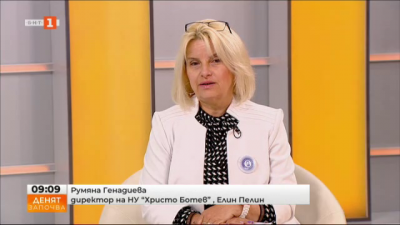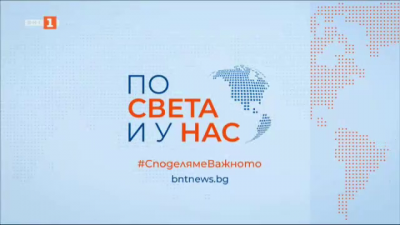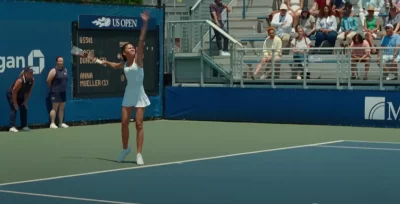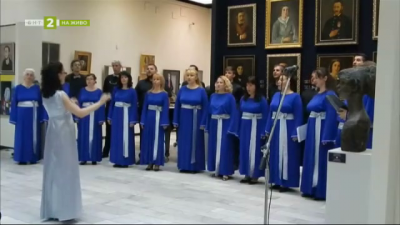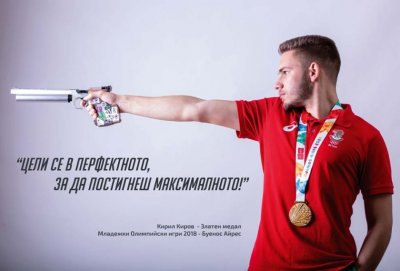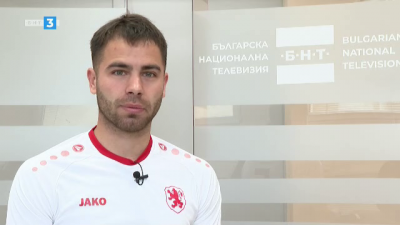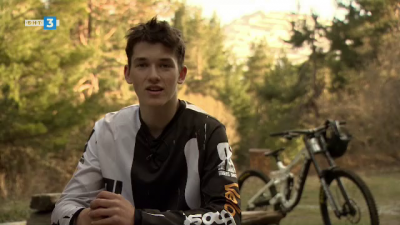EU-Western Balkans Summit: Summary
With a clear perspective on the development of the Western Balkans, but without specific deadlines for the accession of the countries of the region to the EU. This is one of the conclusions...
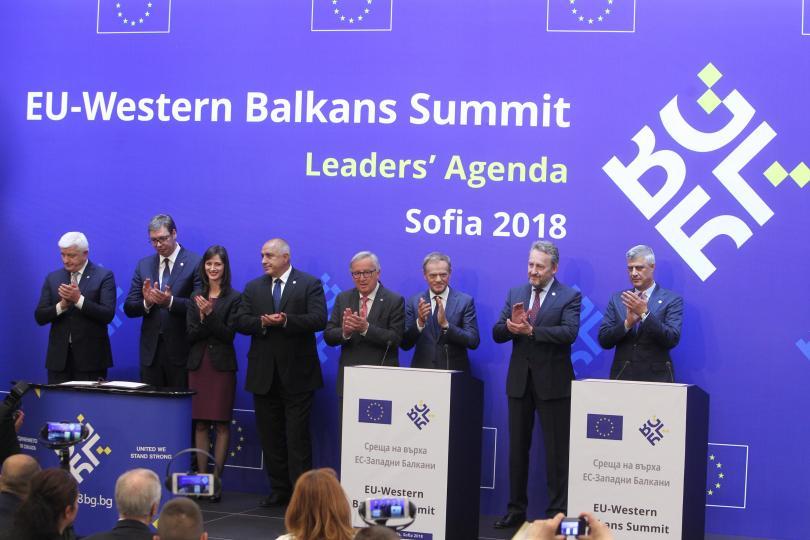
With a clear perspective on the development of the Western Balkans, but without specific deadlines for the accession of the countries from the region to the EU. This is one of the conclusions of the summit recorded in the Sofia Declaration. The European leaders outlined the direction of community development and showed unity as regards Trump's decision on Iran nuclear deal and international trade.
According to Donald Tusk, the historic meeting in Sofia definitely ended with success. In turn, Prime Minister Boyko Borissov stressed that this success for the Bulgarian Presidency is a real success for Bulgaria and this should be clear to all. The topics discussed at the informal dinner on 16th of May and today in the framework of an EU-Western Balkans summit also included the situation in the Middle East and the consequences resulting from Donald Trump’s decision for the US withdrawal from Iran Nuclear Deal. Another topic discussed by the EU leaders was the tariffs and trade with the USA.
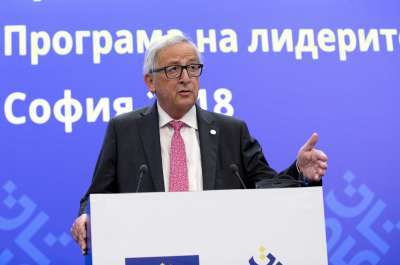
Jean-Claude Juncker, President of the European Commission: If Europe gets an unlimited exemption from the proposed measures for tariffs, we are ready to start negotiations with our transatlantic partners. We want to deepen energy cooperation, we want voluntary cooperation between regulators by both sides and this should be the basis for trade negotiatiations.
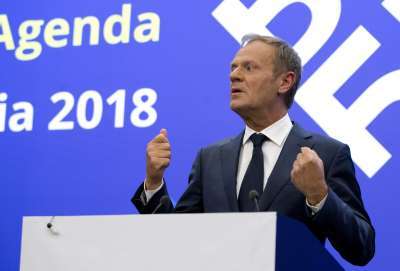
Donald Tusk, President of the European Council: As to the Iran Nuclear Deal we agreed unanimously that the EU will stay in the agreement as long as Iran remains fully committed to it. Additionally the Commission was given a green light to be ready to act whenever European interest are affected.
An agreement was signed on digital connectivity of the countries of the Western Balkans, together with EU Commissioner Mariya Gabriel and the six leaders from the Western Balkan countries. Something that would not have been possible until just a few years ago, Bulgaria’s PM Boyko Borissov said. The topics of the talks were in two areas - political and economic. In political aspect, it has been explicitly stated that the European Perspective of all the Western Balkan countries is irrevocable, but against certain conditions linked to reforms, especially as regards the rule of law and the fight against corruption and organized crime.
Another topic that the leaders touched upon today was connectivity, both in energy, infrastructure, and digital technologies. They also negotiated specific projects to be funded with EU funds as well as with the so-called hybrid financing from global financial institutions - something that was also included in the final declaration.
“The connectivity agenda is neither an alternative nor a substitute for enlargement. It is a way to use the time between today and tomorrow more effectively than before, so that our citizens and businesses are not waiting for all the benefits of EU integration. Because I don’t see any other future for the Western Balkans than the EU. There is no other alternative, there is no plan B. The Western Balkans are an integral part of Europe and they belong to our community,“ Donald Tusk said.
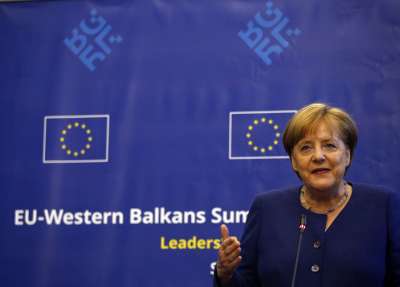
Angela Merkel, Chancellor of Germany: I believe that setting a date for enlargement of the EU is not realistic because access to the EU must be based on progress. That is why it takes time to answer the question - what has been achieved, what’s the progress on the judicial reform and the fight against corruption, to what extent the other conditions are met. How to solve border disputes, for example, she added.
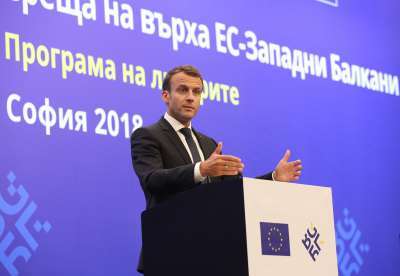
Emmanuel Macron, President of France: It is in our interest to link the Western Balkans with the EU and do it clearly and strongly. However, the enlargement process is impossible without conditions. We cannot open a new enlargement procedure without conditions for the fight against corruption and organised crime and then assess the progress of each country in those areas.
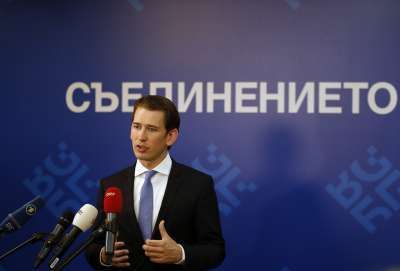
Sebastian Kurz, Chancellor of Austria: We are starting our presidency as of July 1st and will seek to support them. Especially for Serbia and Montenegro, we are very optimistic. I hope that Macedonia and the other countries will resolve the disputes between them.
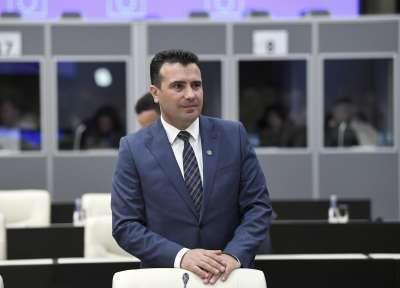
Zoran Zaev, Prime Minister of Macedonia: At today's meeting, together with the Prime Minister of Greece, Macedonia's friend Alexis Tsipras, we noted the progress made so far, what has been achieved in the process of resolving the dispute over the name of our country. Together with Tsipras, we looked at possible options for creative decisions, which Macedonian side presented in the final phase of the negotiations. There will be consultations with the relevant political factors in thwe two countries, he added.
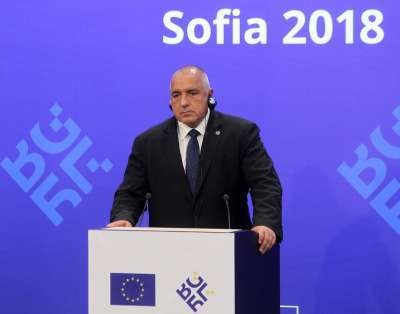
Prime Minister Boyko Borissov also said, the greatest success of this meeting was that it was realised that the basis of a strong EU is that the countries are united. On his part, French President Macron praised Bulgaria for the ways in which it protects the Schengen borders.






